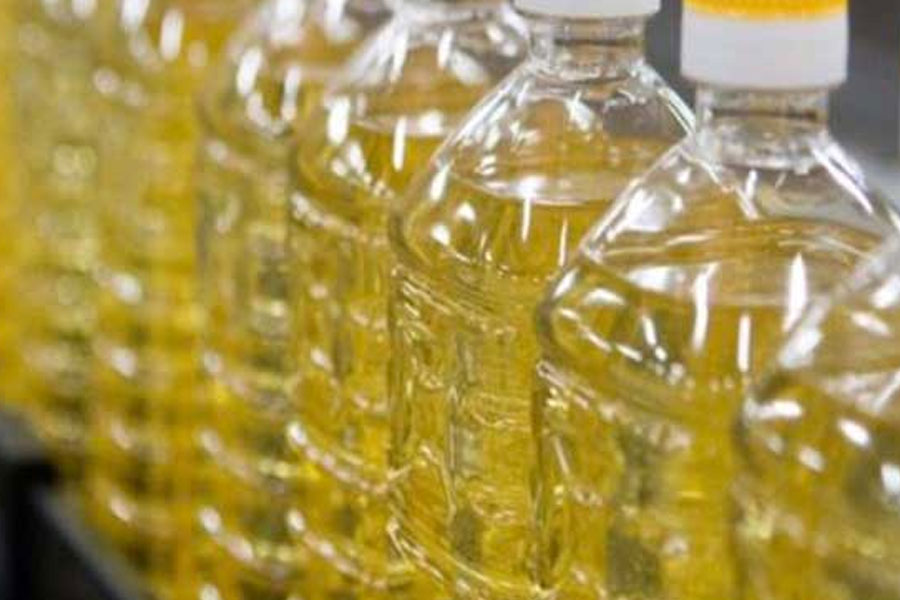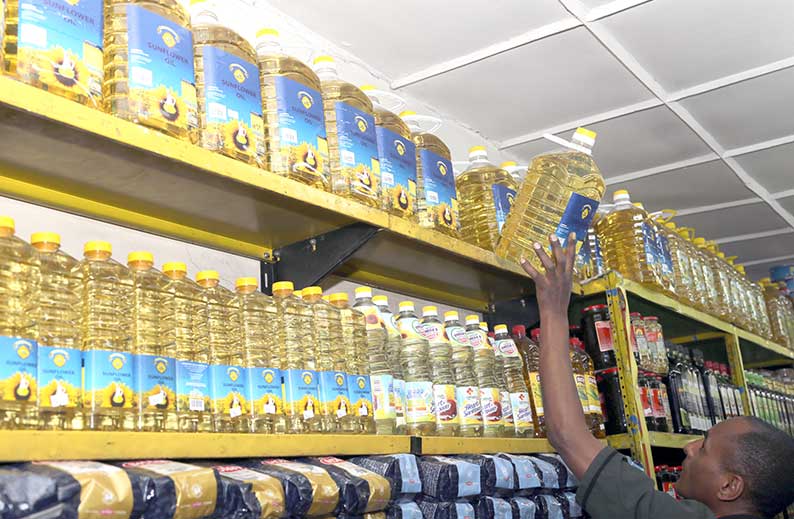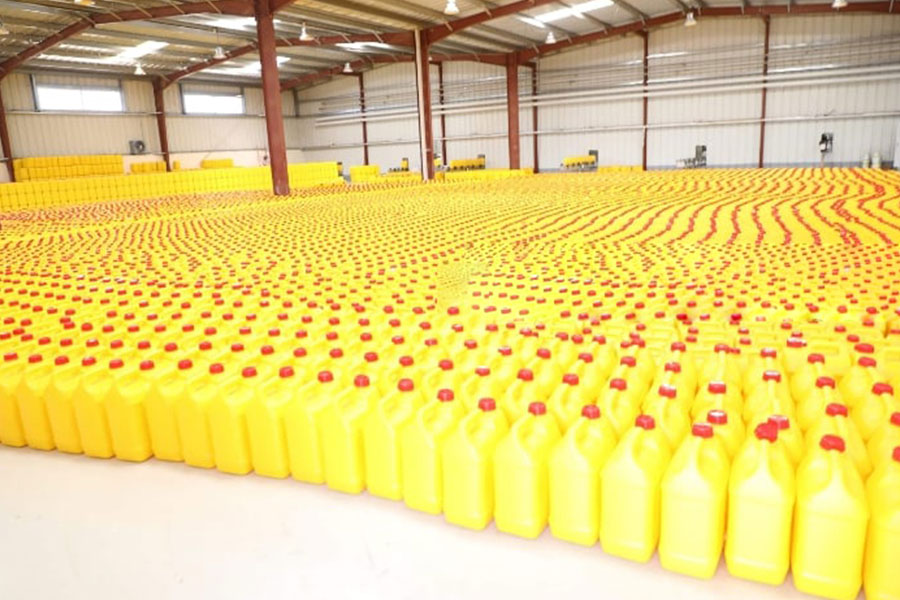
Fortune News | Dec 04,2021
Dec 9 , 2023
By BERSABEH GEBRE ( FORTUNE STAFF WRITER )
Edible oil manufacturers are struggling to sustain vitamin infusions into their products before releasing them to the market. The mandatory infusion of Vitamin A and Vitamin D, essential for night vision and bone strength, was stipulated by the Ethiopian Food & Drug Authority (EFDA) with a yearlong transitional period, which ended in September.
Signed by Negash Sime, deputy head of the food regulation directorate at the Authority, a warning to comply with the requirement was sent out through the Ethiopian Edible Oil Manufacturing Industries Association. Negash urged manufacturers to obtain certification from independent laboratories before hitting the market, indicating a provisional period has passed.
The same requirement is applied to importers with the Authority suspending about 29 flour and oil importer shipments that failed to meet the criteria within the past three months. According to Negash, the regulatory measure will reach local processors soon enough.
“We’re working with Industry and Trade ministries,” he said, “And waiting for insight from the Standard Council.”
The optional mineral and vitamin infusion in edible oil was introduced by the Institute of Ethiopian Standards (IES) six years ago. The reluctance of manufacturers citing high production costs has prompted the officials to make it mandatory, according to Yilma Mengistu, director of standard development.
From a nutritionist's perspective, the decision is plausible. Zelalem Debebe who has two decades of experience in the field, affirms the selection of edible oil and flour also goes in line with popular diets across the country, suggesting that campaigning for supplements might not be as effective.
"Infusion is a better way to expand reach," she said.
However, manufacturers who were sprung with additional production costs are choked with foreign currency shortages.
“Only three were complying,” said Mohammed Yusuf, board director of the Association.
The 35 oil refineries out of a 200-member Association claim to have tried reaching out to aid organisations, with hopes of getting fortified premixes that are commercially prepared.
Global Alliance for Improved Nutrition (GAIN), a Swiss-based foundation established in 2002, came to the rescue providing 240,000 dollars in revolving funds. The Ethiopian Industrial Inputs Development Enterprise (EIIDE) took over the procurement and distribution bringing forth a couple of containers and selling a kilo for 4,253 Br through its outlets.
“Other shipments are on the way,” said Alemayehu Woldeyohannes, head of industrial input procurement and sales at the Enterprise.
Sustainability is another predicament raised by manufacturers.
Edible oil manufacturers who are already on the verge of halting production while operating below capacity are plagued by raw input shortages. They fear that the additional requirement to import ingredients is like adding fuel to the fire.
Incorporated five years ago, Tsehay Farmers’ Cooperative Union with a 100 million Br capital could only utilise its 10pc capacity.
Yihune Dagnew, head of the union formed by 176 primary cooperative unions, stated they floated a bid to acquire the machine used to mix premix and refined oil.
"It’s a luxury for an industry navigating through a bush filled with thorns," said Yihune.
The sporadic conflicts in the regional states prevented the farmers from harvesting sesame and oilseeds used as raw input.
Yehune doubts the Enterprise's role remains constant in importing and distributing premix through the forex crunch, which seems unbeatable. With an investment capital of 850 million Br, Tena Oil was acquired by the business conglomerate Samanu Group in 2015 and is premix standards before the approval year.
The Manager Abraham Mekonnen recalls a series of meetings hosted by the Association along with processors who were not able to comply with the requirement or obtain a mixture machine. His plant needs 59Kg of premix to make 1,087ltr of oil.
"It's peculiar to address health deficiency related to a shortage of vitamins," said Abraham
PUBLISHED ON
Dec 09,2023 [ VOL
24 , NO
1232]

Fortune News | Dec 04,2021

Radar | Feb 24,2024

Fortune News | Jul 10,2020

Radar | Jul 07,2024

Fortune News | Nov 23,2019

Editorial | Mar 20,2021

Fortune News | Apr 17,2021

Fortune News | Nov 16,2019

Fortune News | Jun 23,2019

Viewpoints | Apr 13, 2025

Dec 22 , 2024 . By TIZITA SHEWAFERAW
Charged with transforming colossal state-owned enterprises into modern and competitiv...

Aug 18 , 2024 . By AKSAH ITALO
Although predictable Yonas Zerihun's job in the ride-hailing service is not immune to...

Jul 28 , 2024 . By TIZITA SHEWAFERAW
Unhabitual, perhaps too many, Samuel Gebreyohannes, 38, used to occasionally enjoy a couple of beers at breakfast. However, he recently swit...

Jul 13 , 2024 . By AKSAH ITALO
Investors who rely on tractors, trucks, and field vehicles for commuting, transporting commodities, and f...

Oct 18 , 2025
The political establishment, notably the ruling party and its top brass, has become p...

Oct 11 , 2025
Ladislas Farago, a roving Associated Press (AP) correspondent, arrived in Ethiopia in...

Oct 4 , 2025
Eyob Tekalegn (PhD) had been in the Governor's chair for only weeks when, on Septembe...

Sep 27 , 2025
Four years into an experiment with “shock therapy” in education, the national moo...